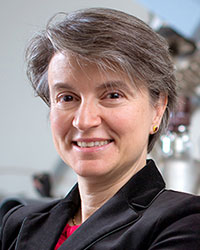Bilge Yildiz
Breene M. Kerr (1951) Professor, Departments of Nuclear Science and Engineering, and Materials Science and Engineering
byildiz@mit.edu
617-324-4009
24-210 and NW14-2207
Yildiz Research Group
Department of Materials Science and Engineering
Consortium for Advanced Simulation of Light Water Reactors (CASL)

